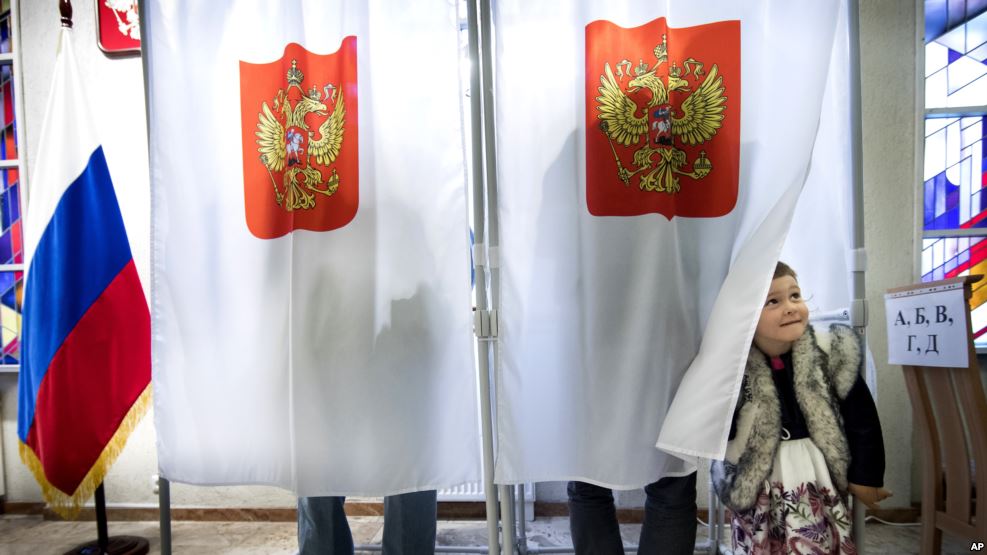“Even if these elections represented progress in transparency and the Central Election Commission (CEC) played a professional role in reacting to some of the reported irregularities, a range of serious problems remain.” Engesland stated.
The governing United Russia party secured 54.2% of the votes, and this will give the party a constitutional majority of 343 seats in the 450 seats Parliament. Three so-called “systemic” opposition parties will continue to be represented in the Duma. The nationalist LDPR and the Communist Party both secured over 13%, while a Just Russia gained just over 6%.
“Independent observers all over the country have registered cases of bussing, carousel voting, and ballot stuffing”, said Lene Wetteland, Senior Advisor and Head of NHC’s Russia Program. “The main problem, however, has been the clampdown on independent organizations, abuse of administrative resources and skewed media coverage.”

The NHC was not present in Russia during the elections, but has followed developments closely. The 2011 Duma elections were followed by large scale protests against election fraud and corruption. In the aftermath of these protests, authorities made numerous law-amendments restricting freedom of assembly, association and expression. The opportunities for international and national organizations to observe the elections were also limited. The election observation organization Golos and other civil society networks nevertheless were able to conduct nationwide observations, and reported on widespread violations of election legislation and procedures up until and on Election Day.
The Organization for Security and Co-operation in Europe (OSCE) organized both long-term and short-term observation missions. According to Ambassador Jan Petersen, Head of the long-term observation mission, “Election day was orderly overall, but the long-term observation showed that challenges to democratic commitments remain, especially with regard to the media, candidate registration and legal framework.” Read statement for OSCE here.
The number of political parties increased after the 2011 elections, as a result of liberalized party-registration processes. However, some opposition initiatives were not registered. Eventually, 14 parties were able to run and more than 6500 candidates were registered for the Duma elections. Excessive registration requirements and limitations on the right to stand resulted however in many potential candidates being excluded.
The liberal opposition parties failed to get enough votes to enter the Duma. The two main opposition parties, Yabloko and Parnas, received 1.89% and 0.7% respectively. – “Three months of campaigning and a few minutes television time is really not enough for Russian opposition parties to get through”, said Wetteland. – “Unfortunately, the elections were not used as an opportunity by the Government to debate Russia’s problems in terms of a stagnating economy, widespread poverty and corruption. Foreign policy issues were absent, except for Anti-Western sentiments.”

There was initially some hope that the reintroduced single mandate districts would benefit opposition candidates. Civil society activists encouraged the electorate to use their vote so that independent candidates could be elected to the Duma. Ella Pamfilova, head of the CEC and respected human rights promoter, stated what many felt: “To my utmost regret, not one other party [than the current four parties in the Duma] managed to get over the 5% barrier.”
“Several factors may have contributed to the low turnout”, said Engesland. – “Russian authorities orchestrated these elections from the very beginning, changing the Election Day from December to September. Many Russians were still at their dachas, picking fruits and vegetables. Mainstream media provided extensive coverage of the President and the ruling United Russia party. Many voters may have seen the result as predictable, inducing a sense that taking part in the elections do not change anything. The fact that more than half of the electorate chose not to cast their vote – down from over 60% in the 2011 elections – is the most striking new development of these elections.”
“We’ve also seen positive developments”, concluded Engesland. “Civil society groups and human rights activists are still active in promoting civil and political rights; including by observing elections. Continued support for their activities is crucial in the years to come. Civil society groups challenge authorities by referring to Russian legislation and international standards; they work on strengthening institutions and make transformation of the society less painful. A Russian state governed by law and respecting human rights is the long-term goal of these groups. It is in the interest of Norway and other democratic states to continue support such activities.”
